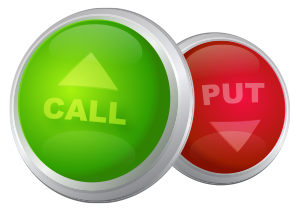What is an Option?
Posted July 12, 2023

An option is a contract. Like a contract to buy a house, there is a buyer and a seller. The asset is the house, and it changes ownership for an agreed price on or before the closing date. The buyer places an earnest money deposit to seal the deal. The purchase of the house follows the terms of the purchase agreement including sales price, the time to close, earnest money deposit, and so on. We will refer to the purchase agreement from here on as the contract.
Now, imagine a world where the buyer could sell the contract itself. The new owner of the contract would have the same rights as the original buyer to close and take ownership the property. The new buyer could either move ahead with the purchase or sell the contract yet again to another prospective buyer.
Let us say the buyer and seller agree on a sales price for the house of $100,000. Suppose the day after the agreement was struck, a gold deposit was discovered under the house. A geological survey estimates that there is a minimum of $30,000,0000 of gold on the property. If the buyer could resell the contract and thus transfer the right to buy the property for the originally negotiated price of $100,000. Obviously, the contract itself would command a tidy sum as the property value had suddenly skyrocketed from $100,000 to $30,000,000! Knowing that the newly found gold deposit makes the property worth at least $30,000,000, perhaps the prospective new buyer will pay even more than that, as they anticipate that possibly even more gold will be found.
On the other side of the deal, the property seller is NOT happy. They are obliged to sell the property to whomever holds the purchase agreement for the agreed price of $100,000. Note that the buyer in the above scenario was in control. The lucky person who agreed to buy the house at the price before the gold deposit was discovered could move ahead with the purchase of the property and then immediately resell the property for a substantial profit. Alternatively, instead of closing on the house and taking ownership, that person could sell the contract itself, and the right to buy the property at the previously negotiated price, would be transferred to the new buyer.
Now imagine that three days after the purchase agreement was signed, a toxic waste dump is discovered behind the house. Now no-one wants the house. The contract to buy the house at $100,000 will become worthless because the house’s market price would have plummeted to zero. The buyer will not close the deal and will walk away, losing the earnest deposit money.
But could the buyer sell the contract itself? No. Who would want to buy the contract to buy a house with a toxic waste dump in the back yard? The contract itself becomes worthless. So, the buyer is out of luck and the contract will expire worthless. The poor seller loses in both scenarios.
Now imagine that instead of a house, the asset is 100 shares of a stock. Instead of a real estate purchase agreement there is an option contract which gives the buyer the option to buy 100 shares of the underlying stock, at an agreed price, on or before an expiration date. That type of option is the call option as it gives the owner the right to “call” the shares away from the call seller. (The second type of option contract is the put option. This option gives its owner the right to “put” the stock shares to the put seller… Ha-ha, Take that!)
The call option contract gives the buyer the right to buy or to sell 100 shares of a stock at an agreed price called the strike price. The option seller accepts the obligation to provide the shares in case the call buyer decides to exercise their right. This contract has a fee paid by the buyer called the option premium. The option seller collects this premium as compensation for accept the obligation. The contract is in force until a specified end date, known as the expiration.
So, an option is simply a contract that allows its owner to buy or sell 100 shares of stock. Call owners may “call” the shares away from the call seller. The put owner may “put” their shares to the put sellers. The option specifies an agreed price where the deal was struck, termed the strike price, and the option will remain in force until the expiration. Just as in the example with the house, the option contract itself has a value that may change dramatically as does the value of the underlying stock. The option itself may be traded because its value increases or decreases as the stock price fluctuates. The option contract may be exercised, and 100 shares of stock ate called away from or put to the seller. Or the option contract may just expire, worthless.
That’s all folks.
Easy, right?

